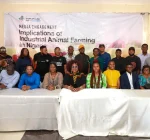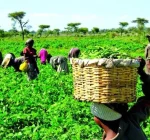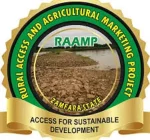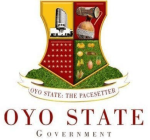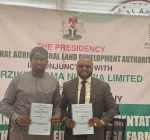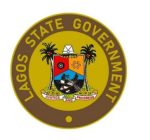FG restates commitment to food sovereignty
- 45 Views
- Agribusiness Africa
- October 20, 2025
- News & Analysis
In a renewed effort to achieve national food sovereignty and boost seed system resilience, the Federal Government of Nigeria has reaffirmed its commitment to advancing agricultural innovation through strategic global partnerships.
Speaking at the 2025 World Food Forum “Seeds to Foods” Exhibition organized by the Food and Agriculture Organization (FAO) in Rome, Italy, the Minister of Agriculture and Food Security, Senator Abubakar Kyari, highlighted Nigeria’s ongoing collaboration with FAO and Türkiye under the South–South Cooperation initiative as a model for sustainable agricultural transformation.
Kyari explained that the FAO–Türkiye–Nigeria project, currently being implemented in Borno State, focuses on improving dryland farming, seed quality, sustainable forest management, and poverty reduction. He emphasized that strengthening Nigeria’s seed systems is central to national food security, stating, “When we strengthen our seeds, we strengthen our farmers; when we secure our seeds, we secure our nation’s future.
The initiative has yielded significant results — including the introduction of 10 Turkish and five local Nigerian crop varieties, the establishment of 219 field demonstrations and 14 seed multiplication plots, and the identification of October 15 as the best sowing date for optimal yields. In addition, 7.5 tonnes of improved seed have been produced, featuring new legumes such as chickpea and lentil, alongside $200,000 worth of investments in capacity building, infrastructure, and institutional strengthening.
A total of 186 participants, including 55 women, benefited from technical training and study visits to Türkiye, enhancing local expertise in seed processing, post-harvest management, and value addition. Supporting infrastructure such as boreholes and field equipment has also been deployed to facilitate irrigation and dry-season farming.
Senator Kyari underscored that the government’s agricultural reform is anchored on a competitive and quality-driven seed system, with the National Agricultural Seeds Council (NASC) empowered to enhance certification, standardization, and research collaboration.
He also praised Borno State Governor, Prof. Babagana Umara Zulum, for his leadership in rebuilding agricultural livelihoods in conflict-affected communities, stressing that agriculture remains a pathway to peace, stability, and dignity.
Kyari commended FAO and the Government of Türkiye for introducing climate-resilient and high-value crops such as lentils, chickpea, fenugreek, coriander, black cumin, buckwheat, and dry beans, which are expected to diversify nutrition, create income streams, and strengthen Nigeria’s agricultural resilience.
As the FAO celebrates its 80th anniversary, the Minister lauded the organization’s long-standing commitment to global food security and sustainable agriculture.
Source: Tribune Online
Expert Review for Agri-Food Stakeholders
Nigeria’s collaboration with FAO and Türkiye represents a strategic shift toward seed sovereignty and climate-smart agriculture, addressing the foundation of the food production system — quality seeds. This partnership highlights how science-driven innovation and international cooperation can redefine the country’s agricultural competitiveness and sustainability.
- Seeds as the Foundation of Food Sovereignty
Seed quality remains the first determinant of agricultural productivity. Nigeria’s focus on developing resilient, high-yielding, and adaptable varieties is essential for achieving food sovereignty. The introduction of new Turkish and local seed varieties not only strengthens yield performance but also enhances the genetic diversity of crops suited for Nigeria’s dryland conditions. - Strengthening Institutional Capacity and Research Collaboration
Empowering the National Agricultural Seeds Council (NASC) signals a policy shift toward institutional accountability and quality assurance. With the right investments in R&D, Nigeria can position NASC as a regional certification hub, ensuring seed traceability and preventing the infiltration of counterfeit or substandard varieties. - Gender Inclusion and Human Capital Development
The participation of 55 women and over 180 trainees in technical exchange programs underscores a progressive move toward inclusivity and skills transfer. This focus on human capital strengthens agricultural professionalism, enabling local experts to replicate innovations learned abroad within Nigeria’s production ecosystems. - Climate Resilience and Dryland Farming Innovation
The introduction of drought-tolerant crops such as lentil, chickpea, and fenugreek is particularly timely as Nigeria faces the realities of climate change. These crops not only withstand harsh conditions but also contribute to soil fertility enhancement through nitrogen fixation — a critical step toward sustainable dryland agriculture. - Scaling the Borno Pilot for National Impact
While the pilot project in Borno demonstrates measurable success, scalability across other northern and middle-belt states will be key to its long-term impact. Replicating this model through regional seed innovation hubs could accelerate Nigeria’s progress toward seed independence and export readiness in the African market.
Conclusion
Nigeria’s participation in the FAO–Türkiye–Nigeria South–South Cooperation marks a new era in seed system transformation. By aligning innovation, research, and global partnerships, the country is laying a sustainable foundation for food sovereignty, rural empowerment, and agricultural resilience. The success of this initiative will depend on consistent investment, policy stability, and private-sector participation to sustain momentum beyond donor-driven cycles.”


